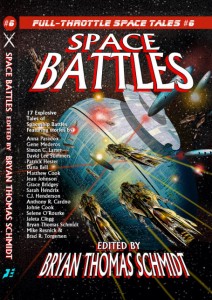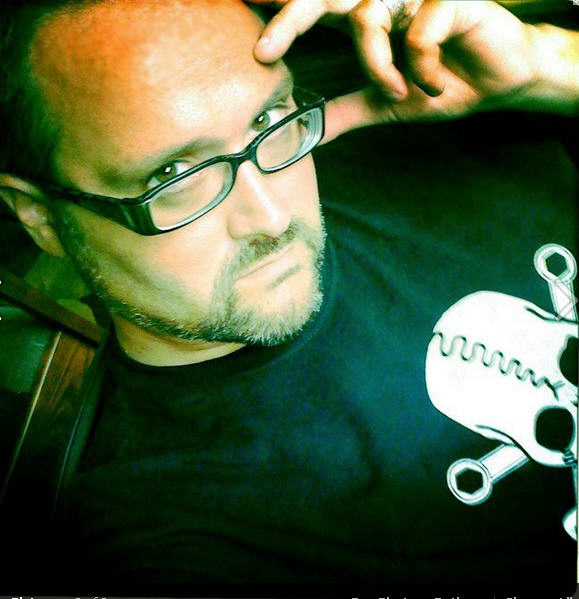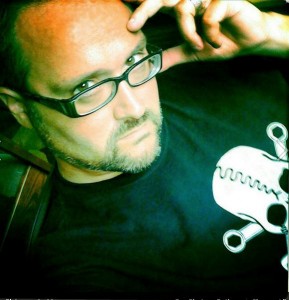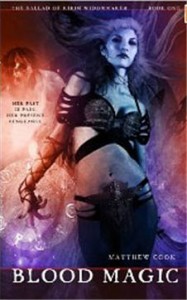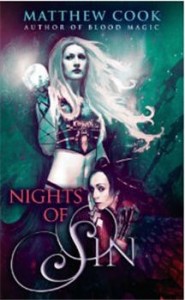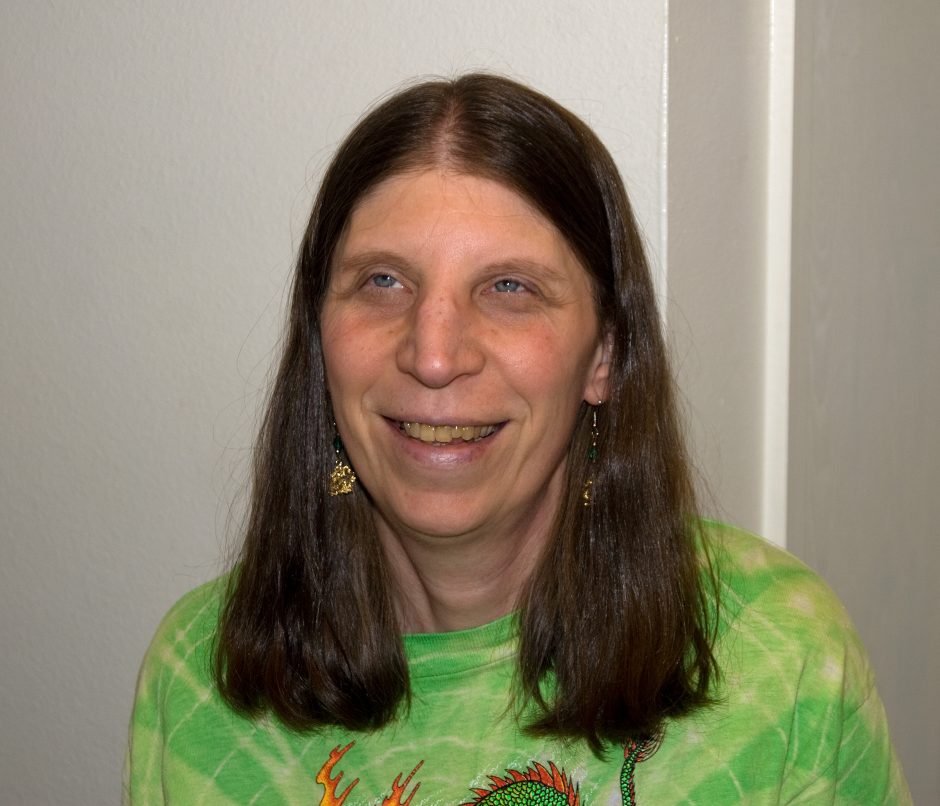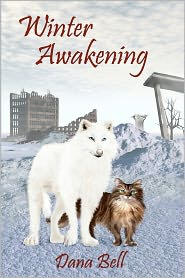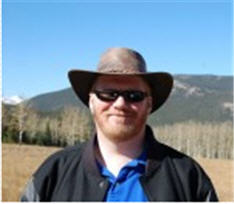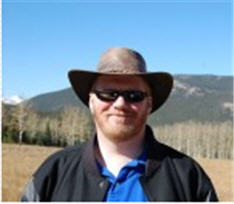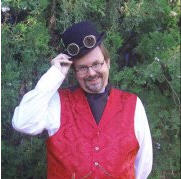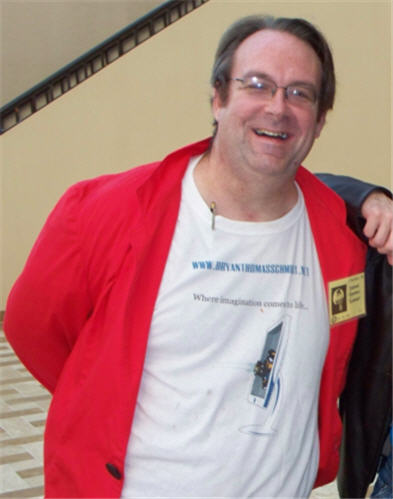 “The Gammi Expriment,” Sarah Hendrix’s Space Battles: Full Throttle Space Tales #6 story was her third anthology sale but wound up being her first SF story published. She does a little bit of everything from publicist work for Apex Publications to slush reading for Dagan Books and co-hosting #sffwrtcht on Twitter. She staves off insanity by untangling her kitten from yarn and working with tiny beads. Despite her heavy workload, she still finds time to write and edit her own stories and game with her fiancé. Her stories can be found in the In Situ and FISH anthologies, both from Dagan Books. You can follow her on her blog at http://shadowflame1974.wordpress.com.
“The Gammi Expriment,” Sarah Hendrix’s Space Battles: Full Throttle Space Tales #6 story was her third anthology sale but wound up being her first SF story published. She does a little bit of everything from publicist work for Apex Publications to slush reading for Dagan Books and co-hosting #sffwrtcht on Twitter. She staves off insanity by untangling her kitten from yarn and working with tiny beads. Despite her heavy workload, she still finds time to write and edit her own stories and game with her fiancé. Her stories can be found in the In Situ and FISH anthologies, both from Dagan Books. You can follow her on her blog at http://shadowflame1974.wordpress.com.
BTS: How did you find out about the Space Battles anthology and what made you decide to submit?
Sarah Hendrix: You invited me to submit,
BTS: Oh yeah, I forgot. *winks* This is your first SF sale, correct? Tell us a little about “The Gammi Experiment.” What’s it about? Where’d this particular idea come from?
SH: First space themed sale. The other two sales are SF related. When I was first invited to the anthology I tossed around several ideas, but they weren’t going anywhere. Then one evening I was listening to my fiance play EVE Online. His corp was getting ready to fight a battle. They were discussing the advantage of small ships doing bombing runs. It got me to thinking. Where would smaller ships have the advantage over a large fleet? What kind of people would have these ships? Why would they want to fight if they were so outnumbered. The ideas for “The Gammi Experiment” was born though it took a few drafts to hammer everything out.
“The Gammi Experiment” is about a former Federation pilot who is asked to be a liaison between some hard headed space miners and a General who desperately needs their assistance against the Ukra pirates.
BTS: You’ve had other stories published. Tell us about those.
SH: I have two other sold stories: “Rachel’s Journal” will be in the upcomming In Situ anthology from Dagan Books. The anthology features artifacts found on other worlds. “Rachel’s Journal” is a story about a dying world. “Never to Return” will be in the FISH anthology, again from Dagan Books. In this book, a girl goes to visit her grandmother. She assists with a team of scientists trying to bring stability back to our poisoned world.
BTS: You also are involved with SFFWRTCHT and do an Urban Fantasy Column, Edge Of The City. Tell us about those please.
SH: I got involved with #SFFWRTCHT in its beginning. I had already been participating in #UFChat and we’re friends. Hopefully, my suggestions at the very beginning have helped the #sffwrtcht gain a following and become as large as it is now. Once the #sffwrtcht blog, I volunteered to do some posts. One of my favorite sub-genres is Urban Fantasy so it was natural to want to do those. I feel that UF has a very broad range of readers and potential story lines. I mean, where else can you get action, adventure, a bit of romance, self reflection, character development and kick (tail) story lines?
BTS: How’d you get started as a writer?
SH: I’ve been writing since I was young. I still have my very first story I wrote in 1st grade. My first stories were of course FanFiction, but I don’t think anyone saw those. It wasn’t until a few years ago that I decided to get serious. I’ve still got a way to go, but enjoying it every step of the way.
BTS: Do you have plans to do any more with this story’s universe?
SH: Actually I do, the Gammi universe deserves some exploration and I intend on doing that sometime.
BTS: What other projects do you have in the works that we can look forward to?
SH: Well, right now, I’ve got a lot of work to do with the stories I have. After taking some great classes with Cat Rambo, I’ve got a better idea of where I need work. It’s going to take some time, but I’ll have more out there in the world soon. *grin*
Here’s an excerpt from “The Gammi Experiment”:
The Gammi Experiment
Sarah Hendrix
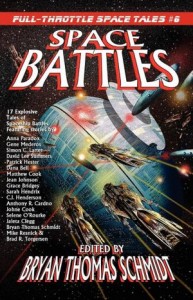


He stepped through the door and closed it, standing at attention before the older woman behind the desk. “You wanted to see me?” Even though he wasn’t a part of the Federation Fleet he knew about General Akinda. One of the few females to make it through the harshest officer training and command a battle fleet, her face was featured on the news vids often enough for her to be recognizable.
She didn’t look at him as she paced in the shadows. “Seven fights in the past two days. Hard headed, sub-space idiots the lot of ’em.”
Unsure if she was speaking to herself or to him, Naz remained silent.
She paused and spun on her heels. Her wrinkled face was furrowed into a tight frown, making it seem much older than her sixty years. “This isn’t working. I can’t make miners into battleship captains in a few weeks. No one can.” She waited for Naz to reply as she glared at him.
Finally he shook his head. “They aren’t Academy recruits, sir. They aren’t disciplined.” Before he’d left the core system, he hadn’t heard of Akinda often but, in those fifteen years, he hadn’t thought much about the Federation fleet except for the war against the Ukra pirates. When her ships arrived in system, he’d done a bit of research and was pleased to find she was at least a competent commander. Tough but in his opinion fair. Still even the best commanders made mistakes.
Akinda sighed and moved to her desk. In the brighter light, her skin was darker than he expected and the streaks of grey hair more pronounced. Naz had a touch of nostalgia as he remembered his grandmother. Akinda shared the same skin tone, a warm brown with a slight build. He almost chuckled at the thought of comparing the two women. One kindly and soft, the other hard and demanding. But even his grandmother had a streak of stubbornness that could not be denied.
“I know that.” Her answer startled him. She sounded tired, defeated, though the fight hadn’t even started. Sitting on the high back chair, she picked up a small stack of papers. “I’ve looked over your file. You were quite a pilot once.”
He couldn’t stop the flinch in his shoulders. “I’m still a pilot.”
Her eyes flicked up to him then back down. “Captain Othran, I’ll be frank. We don’t have a lot of time. The Ukra fleet will probably arrive here in this sector within the next few lunar cycles. And without some sort of defense, all of those hard headed sub-space idiots out there are going to be slaved to their ships until the ores are played out or they burn up.”
His lips pressed harder together with every word the General said. “In the past three weeks, I can’t get anything resembling a squad together let alone a fleet. They agreed,” she paused and pointed at him, “you agreed, to work with us. Yet all I’ve had is trouble.”
“It isn’t like we had much of a choice.” The snarl escaped before he could hold it back.
Akinda’s eyes narrowed. “What did you say Captain?”
He slowly released the fists he had clenched. “You come into the system unannounced, claiming that the Ukra are coming here. You claim we can’t stand against those pirates. They’ve ignored us until now, at least until we opened the Adrian belts. And if it weren’t for the Utobian you wouldn’t be here either.”
“The Federation protects…”
Naz slammed his hand down on the table. “The Federation protects only what it has to. Akinda, you aren’t talking to one of those sub-space idiots here. I spent most of my life in the Academy and in the Federal Fleet. I saw what your Federation protects and doesn’t protect.”
Before she could protest, he continued. “The Ukra build ships faster than the Federation. For every ship taken out, the Ukra supply three more. I’m not stupid and neither are most of those pilots out there. You didn’t just come here to protect the Utobian; you came here to make a point.”
Akinda slowly leaned back and crossed her arms. “What makes you think that, Captain?”
“Why else would you bring in equipment and supplies to refit our ships?”
“Have a seat Othran.” She gestured to the chair opposite her. As soon as he was comfortable, she leaned forward. “You’re right, the Federation doesn’t have enough ships to defend this or any other outlying sector. However we can’t let the Ukra fly in where it wants and take resources. If we don’t have enough ships, we’ll have to find them somewhere. The best option is to use what’s here. Your mining ships. The Federation sends you the equipment and gives the sectors some training. And we are paying you well.”
He couldn’t argue, seven hundred Federal credits a day was a better rate than a day’s haul in the belts. Safer too, at least until the Ukra showed up. “The Council agreed?”
She tried to avoid his gaze. “Let’s just say you are the first experiment. If it works out well, we’ll leave you the equipment, station, and a few ships here in the sector to protect it on your own.”
He knew how the Council worked. Unofficial tests held in out of the way corners gave enough feedback for the Council to make a definite decision. Naz Othran nodded. “How long until they reach us?”
She shrugged. “Another full lunar cycle at least. Maybe more. Since there are no available warp gates, we will know before they reach the system. The Ukra will have to rely on their subspace drives to travel this far. We should have a few days’ warning before they arrive.”
Nervous, he ran a hand through his hair. “It’s not enough time.”
“Captain, it’s all we have. That’s why I need your help.”
“My help, General?”
Akinda leaned forward and put her elbows on the desk. “You know these people, their ships, this system. There isn’t enough on the uplinks for us to even guess about how the asteroid belts flow. Our ships cannot use short distance warps, they’re too large. But your ships can, and do. I want to make use of that advantage. I’ve wasted enough time trying to train them. The ships are almost ready. We need to be flying drills, not sitting in simulations. You’re the only pilot here with officer training. My crews like you. I want you to serve as liaison between my
fleet and the Gammi pilots.”
Naz shook his head. “You read my file?”
The General nodded. “I don’t care about that court-marshal. In fact, I think your commanding officer was a fool to order you to fly against those ships. You saved lives, Captain.”
“I’m not going back.”
Akinda shook her head. “I don’t need you as a member of my fleet. I need you to help me train these pilots so we can break the Ukra.”
He was silent for a very long time. Leaning against the chair, he arched his back and looked at the ceiling. “Don’t treat them like recruits.” He shook his head as he leaned forward again. “The miners pride themselves on being able to work alone. Break them up into smaller groups. Make them compete.”
Akinda nodded as she listened.
***
The sirens didn’t even make her jump anymore. Once the lights began to flash and the howling started, Akinda simply dropped what she was doing like every other pilot and made her way to the ship. Things were more organized now; pilots and crews broken up into squads. With Captain Othran’s help, she’d chosen five pilots to serve as alphas for each squad. Fewer fights, fewer complaints, even if it meant she had less control.
Her ship wasn’t the first out, so she took just a bit longer getting into the command seat. “Everything ready?” she asked her crew.
Her second gave her the all clear signal.
She motioned to her captain. “Rendezvous point.”
In moments they were sliding through space at warp toward where the rest of her fleet waited. She switched comms as soon as they came within range.
“They’ve been training on the sims, but let’s see how this goes,” she said to the captains of her regular fleet, then listened as various affirmatives answered her.
She was taking a huge risk by having the Gammi fleet practice with the few ships that had been able to keep up with her command vessel. The rest of her fleet—slower, larger ships— would arrive behind the Ukra fleet, days perhaps even weeks. Half of the Federation Council felt this was a joke and a waste of time, but the other half saw the need to protect the valuable resources here. If she lost any ships, even the half-rusted frigates the Gammi pilots flew, it would be one less ship in the air.
But she didn’t see any other option. Sims weren’t enough. The pilots needed real-time practice in their own ships.
As the ships in her own fleet moved into a typical Ukra formation, she watched the local scan carefully. It didn’t take long for the first blip to appear.
“Mouser on scan, sir,” her navigator reported.
Akinda nodded as the fast moving ship sped in their direction before suddenly darting off into the asteroid belt nearby. Hopefully the Ukra would think the Mouser was a lone ship out on patrol, not a scout sending coordinates back to a fleet. As the three-man ship disappeared from the scans, her screen blipped indicating her fleet was in place.
“Remember, only light pulses, no weapons. We want to give them a taste of what this fight is going to be like, not scare them into the next cycle.”
Her fleet had seen the Ukra fleet up close more than once and knew the basic attack formation by heart—command ships in the center of the fleet, battleships to the front and sides, tech and repair ships to the rear. As the battleships received damage, they would fall back, allowing fresh, undamaged ships to the fore. It was that constant cascade of relatively undamaged ships that made the Ukra fleets so difficult to defeat. Using standard tactics, she’d never be able to hold them off for more than a few minutes with the half fleet she had.
The Gammi ships had the advantage in the scenario she wanted to fight. Able to warp short distances, the miner’s fleet could assemble just out of sensor range and jump into the battle at any time. Because of their smaller size, they were more maneuverable and able to make quick attacks before warping out of range again.
“Five ships on scan,” her navigator said interrupting her thoughts.
“All ships, full shields,” she commanded, hoping to at least save her fleet ships from damage if anything went wrong.
“Yes, General.”
She felt the faint vibration as the shield generators came up to full power. The blips on the screen scattered and disappeared. Leaning forward, she watched carefully as the local scan remained clear. Her heart beat, counting time.
“We have torpedoes on the starboard side,” one of her battleship commanders reported from the front of the formation.
“Hold steady,” she replied as the torpedoes, light pulses, sped towards the battleships. Two more salvos appeared on the scans before the ships uncloaked and warped away.
Told to react like a Ukra fleet, the head battleship began maneuvering to align with where the five ships first came out of warp. The light pulses exploded harmlessly against three of the frontmost ships of the formation.
Working quickly, she signaled those three ships. “React as though you have been neuted.” In battle, the Gammi ships would be carrying torpedoes that carried electrical charges. The ships in range of the blast would at least be temporarily crippled as electrical systems such as navigation and weapons went off line. If they got lucky, there would be one less Ukra ship to worry about.
Not waiting for a reply, she watched on her vidscreen as the three crippled ships started to drift. Expecting the next wave of ships to warp in at the same point the rest of the fleet turned away from the drifting battleships. Her ships attempted to align to the coordinates from which the Gammi ships warped in, as the disabled ships drifted, causing confusion.
Akinda knew the Ukra counted on the repeated actions of the Academy trained pilots. Many of the fleet commanders had less imagination than her pinky finger. It was no wonder the Ukra had decimated ship numbers greater than their own. But the more she studied their actions, the more convinced she became that even the Ukra had become complacent.
Her fleet completed maneuvers, aligning to the proper coordinates.
Pulse engines engaged, they began to close the distance.
“Port side, incoming!” another ship relayed moments before five more blasts hit several of the ships.
Continued in Space Battles: Full Throttle Space Tales #6 which you can purchase here.





